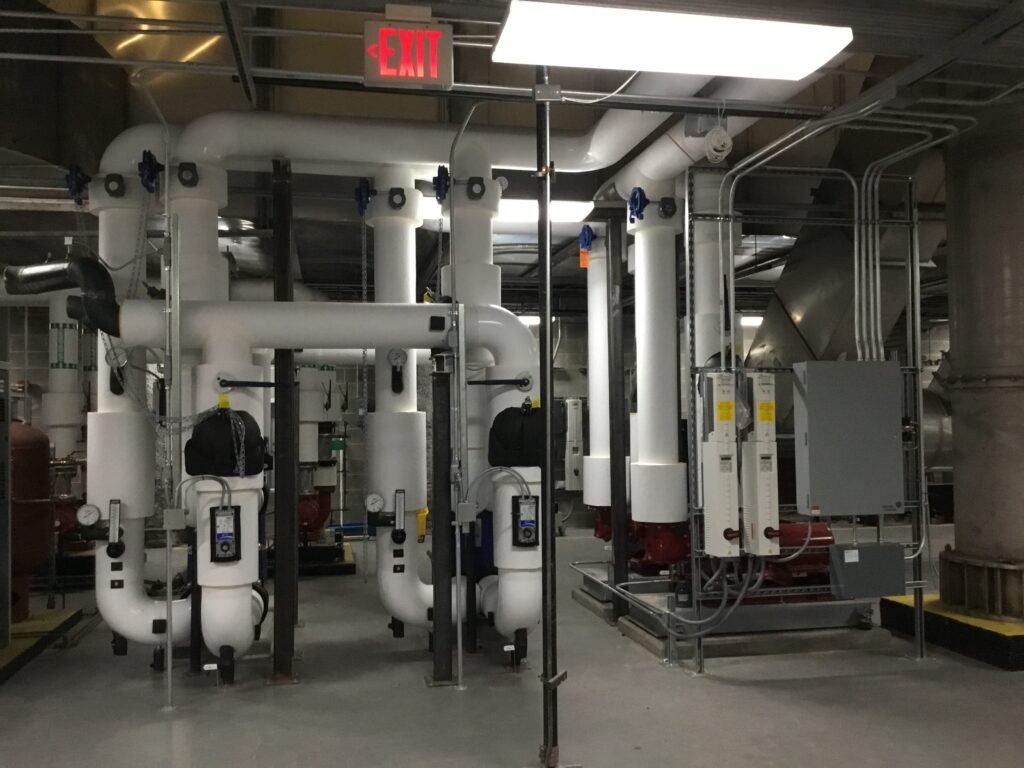Hey there, Atlanta business owners and managers! We know the mere mention of plumbing codes might induce some eye rolls, but bear with us. Understanding and navigating Atlanta’s commercial plumbing regulations can be your secret weapon for maintaining a smoothly running ship. Break down this guide and make sense of it all!
1. Overview of Atlanta’s Plumbing Code
Picture Atlanta’s plumbing code as your property’s guardian angel, ensuring everything runs safely and efficiently. From fixture counts to pipe sizes and accessibility standards, this section will be your guide to the basics. We’ll keep it light, so you’ll see these code fundamentals are more friend than foe.
2. Common Commercial Plumbing Code Requirements
Okay, let’s get real about these code requirements. Think of them as the playbook for your property. From fixture counts based on your business type to choosing the right pipe sizes – we’ll demystify these requirements. Understanding the rules of the game is your ticket to a hassle-free plumbing system.
- International Plumbing Code (IPC): In Atlanta, we adhere to the International Plumbing Code, a comprehensive set of regulations governing plumbing systems’ design, installation, and upkeep in commercial properties. From ensuring proper water supply to managing drainage and venting, the IPC covers all aspects of plumbing to maintain safety and functionality.
- Backflow Prevention: Protecting our public water supply is paramount, which is why Atlanta mandates the installation of backflow prevention devices in commercial buildings. These devices are essential safeguards, preventing any backward flow of water from a building’s plumbing system into our public water system, thus maintaining water purity and safety.
- Accessibility Standards: At the heart of our city’s ethos is inclusivity and accessibility for all. Commercial properties in Atlanta are required to adhere to strict accessibility standards outlined in the Americans with Disabilities Act (ADA). This ensures that plumbing fixtures and facilities, such as bathrooms and sinks, are designed and installed to accommodate individuals with disabilities, fostering an inclusive environment for everyone.
- Water Conservation: Atlanta is committed to sustainability, and that extends to our water usage. To conserve this precious resource, commercial buildings must incorporate water-saving measures. This includes installing low-flow plumbing fixtures like toilets, faucets, and showerheads, which not only reduce water consumption but also contribute to our city’s eco-friendly initiatives.
- Grease Interceptors: Our bustling culinary scene adds flavor to Atlanta’s culture, but it also comes with responsibility. Commercial kitchens and food establishments are required to install grease interceptors or traps. These devices play a crucial role in preventing fats, oils, and grease from clogging our sewer system, ensuring smooth operation and protecting our environment.
Understanding and adhering to these plumbing codes are essential for property owners, developers, and contractors alike. By following these regulations, we ensure the safety, health, and sustainability of our commercial buildings, fostering trust and reliability within our community.
3. Updates and Changes in the Plumbing Code
Believe it or not, plumbing codes aren’t stagnant. They evolve to keep up with technology and safety standards. In this section, we’ll be your code update news anchor. We’ll break down recent changes so you can ensure your plumbing systems stay ahead of the curve.
4. Importance of Hiring a Licensed Commercial Plumber
Navigating the plumbing code jungle can be intimidating. Enter licensed plumbers – your sidekick in this adventure. We’ll discuss why hiring these pros is a game-changer. They speak the plumbing code language fluently, ensuring your installations not only meet but exceed requirements.
5. Potential Consequences of Non-Compliance
Breaking the rules has consequences – fines, business hiccups, and potential legal woes. Let’s dive into the not-so-fun stuff but crucial details. Staying compliant isn’t just about avoiding headaches; it’s about keeping your plumbing systems safe, efficient, and hassle-free.
Who Can Help?
Need some expert help? At Willis Mechanical, our technicians are experts in the work and the rules. We ensure the work complies with all Atlanta plumbing codes and regulations. From getting the right pipes, to ensuring employee safety, we will handle all aspects of your plumbing infrastructure. Have questions? Call or email us today, and we will get back to you within 24 hours.
